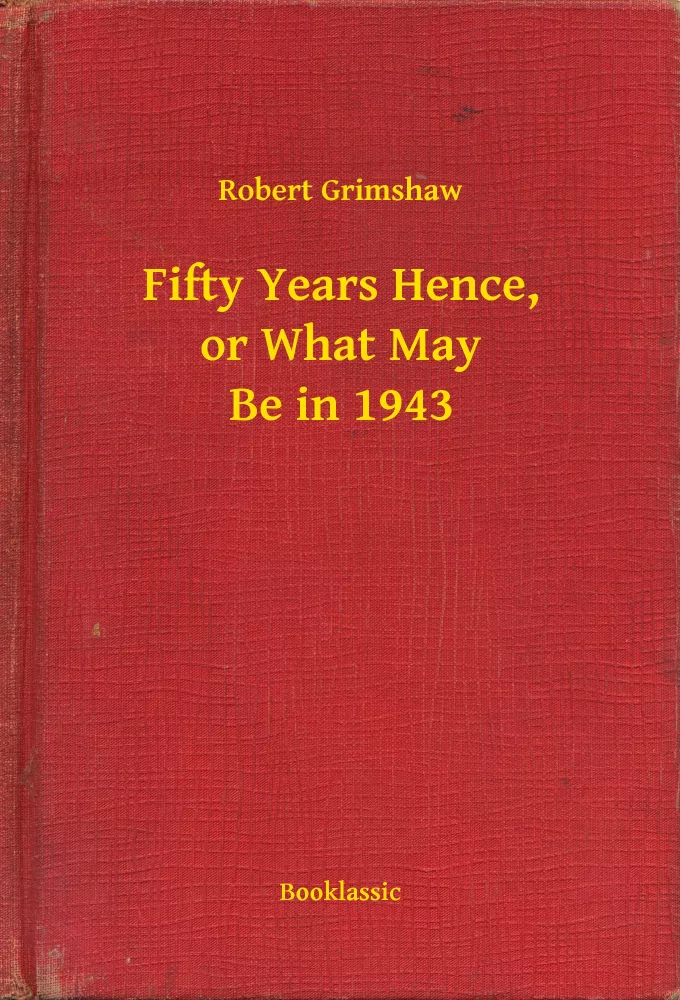"Fifty Years Hence" is a quasi-fictional work by
Robert Grimshaw, a professional engineer, with the intent of making a serious prediction of America's technological future, using engineering knowledge from his time in 1892.The fictional narrator is 21-year-old Francis Ainsworth. At the Masonic Lodge in New York City, Francis hears a fascinating lecture, based in Masonic mysticism, by one Roger Brathwaite. Francis befriends Brathwaite, who shares some of his future-prediction methods based on graphical engineering, and a lends him a manuscript predicting conditions in America in 50 years. However, before the friendship can flower, Brathwaite is mysteriously killed in a fire at his home, which also destroys his lifetime’s worth of records and predictive methods. All that Francis has left is the borrowed manuscript, which is reproduced in the novel.Some predictions, by 1943: a new phonetic language would be designed by philologists and spoken everywhere in the world (see Esperanto); typewriting machines would be ubiquitous and would communicate instantly across the world; all "books of record" would be written on machine only; telegraphs and facsimile documents would be transmitted by wire or wirelessly and would include color pictures; wireless telegraph and telephone with ships at sea and connecting all cities in the world; seamless concrete homes; water & gas & electricity utilities; electric street lighting; working from home by communication at great distances; doubling of average life span by medical improvements; hydroelectric, tidal, and windmill electricity generation with storage; lightweight batteries powering electric vehicles; large-scale electric welding; all-steel ships with welded, leak-proof structure; manufacture of industrial diamonds; aluminum railroad cars; cloud-seeding to make rain; government-guarantee of bank deposits; uniform laws on divorce; women's right to vote; executions by gas chamber; and more.As a side note,
Robert Grimshaw dedicated the book to his children, "Who may perchance, fifty years hence, compare these prophecies with what has then come about." He apparently lived long enough (to at least 1940) to make the comparison for himself.Digitized by the Internet Archive in 2010 with funding from Duke University Libraries. Edited by Stanley Sokolow.
